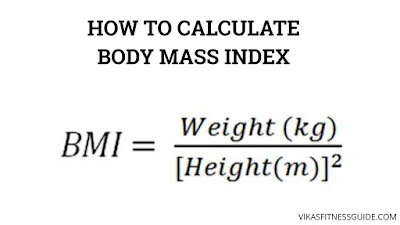Body mass index (BMI) is a numerical value calculated using a person’s height and weight. It is a widely used tool to estimate body fat and determine weight categories such as underweight, normal weight, overweight or obese.
Although it is not a direct measurement of body fat, BMI provides a simple and convenient way to assess the potential health risks associated with weight.
What is BMI-Body Mass Index
BMI, or Body Mass Index, is a measure of body fat based on height and weight that applies to both adult men and women.
To calculate your BMI, follow these steps:
Measure your weight in kilograms (kg). If you don’t know your weight in kg, you can convert your weight in pounds (lbs) to kg by multiplying it by 0.45. For example, if your weight is 150 lbs, your weight in kg would be 150 x 0.45 = 67.5 kg.
Measure your height in meters (m). If you don’t know your height in meters, you can convert your height in inches (in) to meters by multiplying it by 0.0254. For example, if your height is 68 inches, your height in meters would be 68 x 0.0254 = 1.73 m.
Once you have your weight in kg and height in meters, square your height. For example, if your height is 1.73 m, you would square it to get 1.73 x 1.73 = 2.99.
Divide your weight in kg by the squared value of your height. For example, if your weight is 67.5 kg and your height squared is 2.99, you would divide 67.5 by 2.99 to get a BMI of approximately 22.5.
What is BMI used for:
BMI (Body Mass Index) is a measure of body fat based on a person’s height and weight. It is commonly used as a screening tool to determine whether a person’s weight is within a healthy range for their height. BMI is calculated by dividing a person’s weight in kilograms by their height in meters squared.
BMI is used to assess a person’s risk for various health conditions that are associated with being overweight or obese, such as heart disease, high blood pressure, type 2 diabetes, and certain types of cancer.
However, it’s important to note that BMI is not a perfect measure of body fat and does not take into account other factors such as muscle mass, bone density, or body composition.
For example, a person with a high amount of muscle mass may have a high BMI but be very healthy.
Overall, BMI is a useful tool for identifying individuals who may be at increased risk for certain health conditions and may benefit from further evaluation or intervention.
However, it should not be used as the sole determinant of a person’s health or fitness level, and other factors should be considered as well.
How to calculate BMI:
- BMI in kg=weight in kg /height in m2
- BMI in pounds=Weight in pounds/height in (inches)2 × 703
BMI in kg (Formula)
First method:
For example, if your height is 5 feet 5 inches first convert your height in centimeters let’s convert in cm with an easy formula.
You know 1 inch = 2.54cm and 1 feet=12 inches multiply 5*12= 60+5 inches=65 inches now multiply 65 inches*2.54cm=165cm your height in cm.
BMI in Pounds (Formula)
Your BMI will fall into one of the following categories:
- Underweight: BMI less than 18.5
- Normal weight: BMI between 18.5 and 24.9
- Overweight: BMI between 25 and 29.9
- Obese: BMI of 30 or higher
Do you know bodybuilders have more lean muscle mass and their weight is over 80 kg and professional bodybuilders have a BMI of 25 to 30 which is included in the overweight category? Because of just lean muscles mass weight.
On the other hand, bodybuilders have only 8 percent to 12 percent body fat. Still, their BMI is above 23 because of their muscle weight only.
Final words:
I hope you like the article don’t forget to follow our blog.






